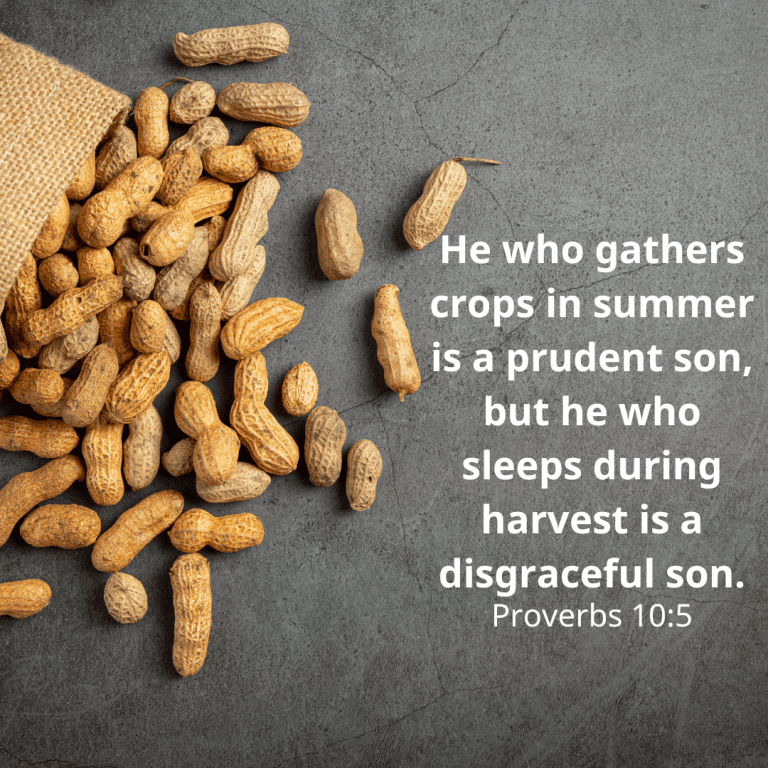Ш§Щ„ШұШЁ Щ…Щ„Ш¬ШЈ Ш§Щ„Щ…ШіШ§ЩғЩҠЩҶ
1 ЩҠШ§ ШұШЁЩ‘ЩҸШҢ Щ„ЩҗЩ…Ш§Ш°Ш§ ШӘЩҺЩӮЩҗЩҒЩҸ ШЁШ№ЩҠШҜШ§Шҹ
Щ„Щ…Ш§Ш°Ш§ ШӘЩҺШӘЩҲШ§ШұЩү ЩҒЩҠ ЩҲЩӮШӘЩҗ Ш§Щ„Ш¶Щ‘ЩҗЩҠЩӮЩҗШҹ
2 Ш§Щ„ШҙЩ‘ЩҗШұЩ‘ЩҗЩҠШұЩҸ ЩҠЩҺШӘШЁШ§ЩҮЩү ЩҲЩҠЩҺШёЩ„ЩҗЩ…ЩҸ Ш§Щ„Щ…ЩҗШіЩғЩҠЩҶЩҺШҢ
ЩҒЩҠЩҸШӨШ®ЩҺШ°ЩҸ ШЁШ§Щ„Щ…ЩҺЩғШ§ЩҠШҜЩҗ Ш§Щ„Щ‘ШӘЩҠ ШҜЩҺШЁЩ‘ЩҺШұЩҺЩҮШ§.
3 Ш§Щ„ШҙЩ‘ЩҗШұЩ‘ЩҗЩҠШұЩҸ ЩҠЩҺШӘЩҮЩҺЩ„Щ‘ЩҺЩ„ЩҸ ШЁЩҗШҙЩҮЩҺЩҲШ§ШӘЩҗ ЩҶЩҒШіЩҗЩҮЩҗШҢ
ЩҲЩҠЩҺШӘЩҒШ§ШЎЩҺЩ„ЩҸ ШЁШ§Щ„ШұЩ‘ЩҗШЁШӯЩҗ ЩҲЩҠЩҺШіШӘЩҮЩҠЩҶЩҸ ШЁШ§Щ„ШұЩ‘ШЁЩ‘Щҗ.
4 ЩҠШҙЩ…ЩҺШ®ЩҸ ШЁЩҗШЈЩҺЩҶЩҒЩҗЩҮЩҗ ЩҲЩ„Ш§ ЩҠШіШЈЩ„ЩҸ Ш№ЩҺЩҶЩҗ Ш§Щ„Щ„ЩҮЩҗШҢ
ЩҲЩҒЩҠ ЩғЩҺЩҠШҜЩҗЩҮЩҗ ЩҠЩӮЩҲЩ„ЩҸ: Щ„Ш§ ШҘЩ„ЩҮЩҺвҖҢ.
5 ЩҠЩҺШӯШӘШ§Щ„ЩҸ ЩҒЩҠ Щ…ЩҺШіШ§Ш№ЩҗЩҠЩҮЩҗ ЩғЩҸЩ„Щ‘ЩҺ ШӯЩҠЩҶЩҚШҢ
ЩҲШЈШӯЩғШ§Щ…ЩҸЩғЩҺ ЩҒЩҲЩӮЩҺ Щ…ЩҸШӘЩҺЩҶШ§ЩҲЩҺЩ„Щҗ ЩҒЩҺЩҮЩ…ЩҗЩҮЩҗ.
ЩҠШіШӘЩҺШ®ЩҗЩҒЩ‘ЩҸ ШЁЩҗЩҖШ¬Щ…ЩҠШ№Щҗ Щ…ЩҸШ®Ш§ШөЩҗЩ…ЩҠЩҮЩҗ
6 ЩҲЩҒЩҠ ЩӮЩ„ШЁЩҗЩҮЩҗ ЩҠЩӮЩҲЩ„ЩҸ: В«Щ„Ш§ ШЈШӘШІЩҺШ№ШІЩҺШ№ЩҸШҢ
ЩҲЩ„Ш§ ШЈЩҸШөШ§ШЁЩҸ ШЈШЁШҜШ§ ШЁЩҗШіЩҸЩҲШЎЩҚВ».
7 Щ…ЩҗЩ„Щ’ШЎЩҸ ЩҒЩҺЩ…ЩҗЩҮЩҗ Щ„Ш№ЩҶШ©ЩҢ ЩҲЩ…ЩҺЩғЩ’ШұЩҢ ЩҲШӯЩ…Ш§ЩӮШ©ЩҢШҢ
ЩҲШӘШӯШӘЩҺ Щ„ЩҗШіШ§ЩҶЩҗЩҮЩҗ ЩҒШіШ§ШҜЩҢ ЩҲШҘШ«Щ’Щ…ЩҢвҖҢ.
8 ЩҠШ¬Щ„ЩҗШіЩҸ ЩҒЩҠ Ш§Щ„Щ…ЩғШ§Щ…ЩҗЩҶЩҗ Ш§Щ„Ш¶Щ‘ЩҺЩҠЩ‘ЩҗЩӮШ©ЩҗШҢ
ЩҲЩҒЩҠ Ш§Щ„Ш®ЩҗЩҒЩ’ЩҠШ©Щҗ ЩҠЩӮШӘЩҸЩ„ЩҸ Ш§Щ„ШЁЩҺШұЩҗЩҠШЎЩҺ.
ШӘЩҸШұШ§ЩӮЩҗШЁЩҸ Ш№ЩҠЩҶШ§ЩҮЩҸ Ш§Щ„Ш¶Щ‘ЩҺШ№ЩҠЩҒЩҺ
9 ЩҲЩҠЩғЩ…ЩҸЩҶЩҸ ЩғШ§Щ„ШЈШіШҜЩҗ ЩҒЩҠ Ш№ЩҺШұЩҠЩҶЩҗЩҮЩҗШҢ
ЩҠЩғЩ…ЩҸЩҶЩҸ Щ„ЩҗЩҖЩҠЩҺШ®Ш·ЩҺЩҒЩҺ Ш§Щ„Щ…ЩҺШіШ§ЩғЩҠЩҶЩҺШҢ
ЩҠЩҺШ®Ш·ЩҺЩҒЩҸЩҮЩҸЩ… ЩҲЩҠЩҸЩ…ШіЩҗЩғЩҸЩҮЩҸЩ… ШЁЩҗШҙЩҺШұЩғЩҗЩҮЩҗ.
10 ЩҮЩғШ°Ш§ ЩҠЩҺШұШӘЩҺЩ…ЩҸЩҲЩҶЩҺ ЩҲЩҮЩҸЩ… Ш¶ЩҸШ№ЩҺЩҒШ§ШЎЩҸ
ЩҲЩҠЩҺЩҶШӯЩҶЩҲЩҶЩҺ ЩҲЩҠШіЩӮЩҸШ·ЩҲЩҶЩҺ ЩҒЩҠ ЩӮШЁШ¶ЩҺШӘЩҗЩҮЩҗ.
11 ЩҲЩҠЩӮЩҲЩ„ЩҸ ЩҒЩҠ ЩӮЩ„ШЁЩҗЩҮЩҗ: В«ЩҶЩҺШіЩҠЩҺЩҶЩҠ Ш§Щ„Щ„ЩҮЩҸШҢ
ЩҲШӯЩҺШ¬ШЁЩҺ ЩҲШ¬ЩҮЩҺЩҮЩҸ ЩҒЩ„ЩҶ ЩҠЩҶШёЩҸШұЩҺВ».
12 ЩӮЩҸЩ…Щ’ ЩҠШ§ ШұШЁЩ‘ЩҸ ЩҲШ§ШұЩҒШ№Щ’ ЩҠЩҺШҜЩҺЩғЩҺ.
ЩҠШ§ Ш§Щ„Щ„ЩҮЩҸ Щ„Ш§ ШӘЩҺЩҶШіЩҺ Ш§Щ„Щ…ЩҺШіШ§ЩғЩҠЩҶЩҺ.
13 Щ„ЩҗЩ…Ш§Ш°Ш§ ЩҠШіШӘЩҮЩҠЩҶЩҸ ШЁЩҗЩғЩҺ Ш§Щ„ШҙЩ‘ЩҗШұЩ‘ЩҗЩҠШұЩҸ
ЩҲЩҠЩӮЩҲЩ„ЩҸ ЩҒЩҠ ЩӮЩ„ШЁЩҗЩҮЩҗ: В«Щ„Ш§ ЩҠЩҸШӯШ§ШіЩҗШЁЩҸВ»ШҢ
14 Щ„ЩҗЩ…Ш§Ш°Ш§ ШӘШұЩү Ш§Щ„ЩҒШіШ§ШҜЩҺ ЩҲШ§Щ„ШЁЩҸШӨЩ’ШіЩҺ
ЩҲЩ„Ш§ ШӘЩҸШёЩҗЩҮШұЩҸ ЩҲШӘЩ…ЩҸШҜЩ‘ЩҸ ЩҠЩҺШҜЩҺЩғЩҺШҹ
Ш№Щ„ЩҺЩҠЩғЩҺ ЩҠЩҸШ№ЩҲЩ‘ЩҗЩ„ЩҸ ЩғЩҸЩ„Щ‘ЩҸ Ш¶Ш№ЩҠЩҒЩҚШҢ
ЩҲШЈЩҶШӘЩҺ Ш§Щ„Щ‘Ш°ЩҠ ЩҠЩҸШ№ЩҠЩҶЩҸ Ш§Щ„ЩҠШӘЩҠЩ…ЩҺ.
15 ШӯЩҺШ·Щ‘ЩҗЩ…Щ’ Ш°ЩҗШұШ§Ш№ЩҺ Ш§Щ„ЩҒШ§Ш¬ШұЩҗ Ш§Щ„ШҙЩ‘ЩҗШұЩ‘ЩҗЩҠШұЩҗШҢ
ЩҲШ§вҖҸЩ…Щ’ШӯЩҸ ШҙЩҺШұЩ‘ЩҺЩҮЩҸ ЩғШЈЩҶЩ’ Щ„Щ… ЩҠЩғЩҸЩҶЩ’.
16 Ш§Щ„ШұЩ‘ШЁЩ‘ЩҸ ЩҠЩҺЩ…Щ„ЩҗЩғЩҸ ШҘЩ„Щү Ш§Щ„ШЈШЁШҜЩҗШҢ
ЩҲШӘЩҺШЁЩҗЩҠШҜЩҸ Ш§Щ„ШЈЩҸЩ…ЩҺЩ…ЩҸ Ш№ЩҺЩҶЩ’ ШЈШұШ¶ЩҗЩҮЩҗ.
17 ШҘЩҗШіЩ…ЩҺШ№Щ’ ШўЩҮШ§ШӘЩҗ Ш§Щ„Щ…ЩҺШіШ§ЩғЩҠЩҶЩҗ
ЩҲЩӮЩҺЩҲЩ‘Щҗ ЩӮЩҸЩ„ЩҲШЁЩҺЩҮЩҸЩ… ЩҠШ§ ШұШЁЩ‘ЩҸ.
ШЈШөШәЩҗ ШЁШЈШ°ЩҸЩҶЩҗЩғЩҺ ЩҠШ§ Ш§Щ„Щ„ЩҮЩҸ
18 Щ„ЩҗШӘЩҸЩҶЩ’ШөЩҗЩҒЩҺ Ш§Щ„ЩҠШӘЩҠЩ…ЩҺ ЩҲШ§Щ„Щ…ЩӮЩҮЩҲШұЩҺШҢ
ЩҒЩ„Ш§ ЩҠШ№ЩҲШҜ ЩҠЩҸЩҒШіЩҗШҜЩҸ Ш§Щ„ШЈШұШ¶ЩҺ ШҘЩҶШіШ§ЩҶЩҢ.
© Bible Society of Lebanon


